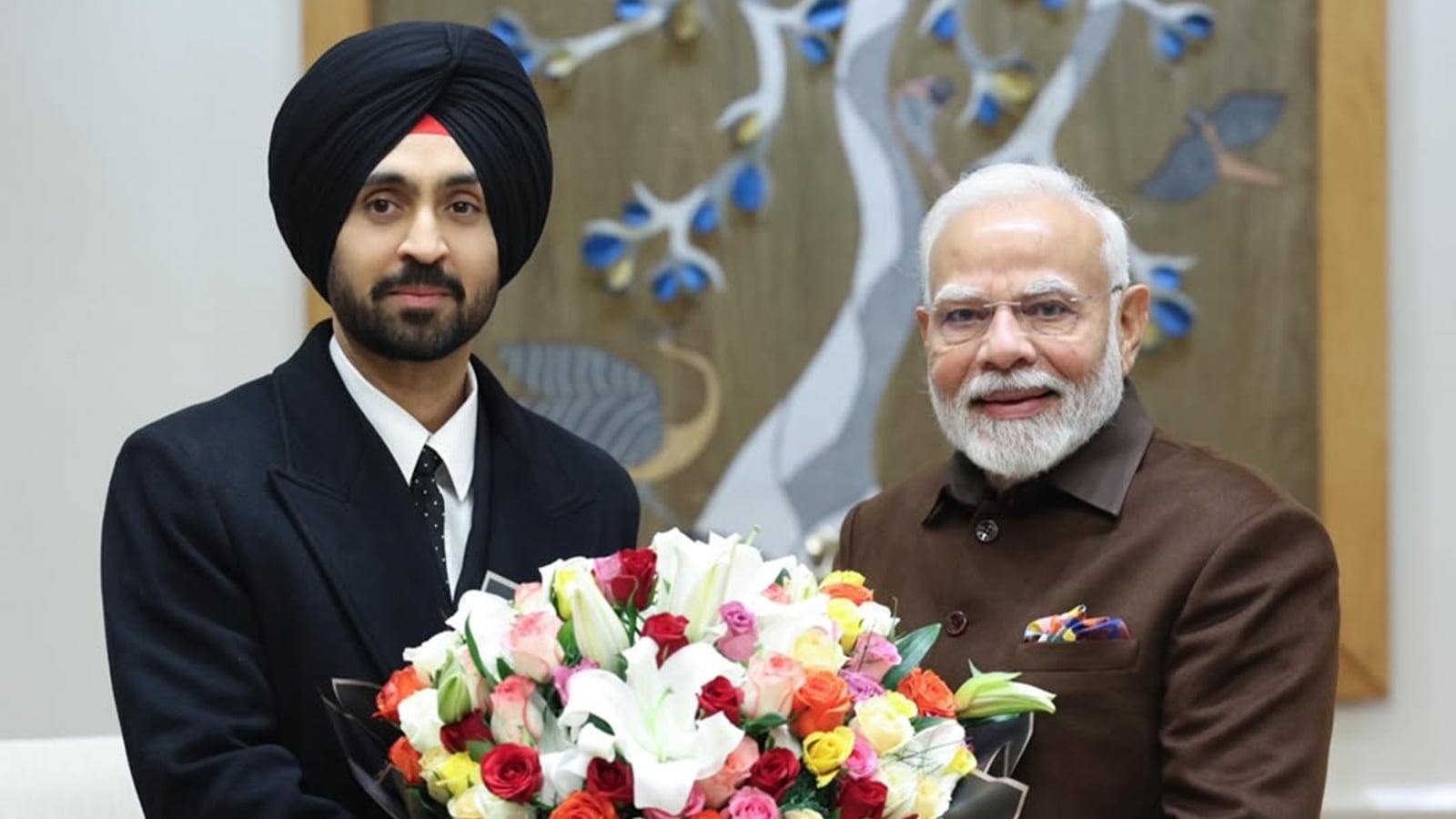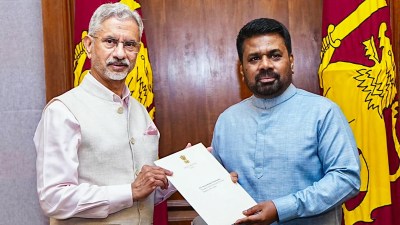📣 For more lifestyle news, click here to join our WhatsApp Channel and also follow us on Instagram
Diljit Dosanjh tells PM Modi how his ‘auda’ can sometimes become bigger than him as a person: ‘Hum bhool jaate hain…’
For us, you are the Prime Minister—it’s a big post. Sometimes, we forget that there is a son and a human being behind it,” Diljit Dosanjh said
 Diljit Dosanjh meets PM Narendra Modi for a heartfelt discussion on music, humanity, and leadership (Source: Diljit Dosanjh/Instagram)
Diljit Dosanjh meets PM Narendra Modi for a heartfelt discussion on music, humanity, and leadership (Source: Diljit Dosanjh/Instagram)The dawn of 2025 brought an unforgettable moment for Punjabi actor-singer Diljit Dosanjh, as he met Indian Prime Minister Narendra Modi.
Sharing his excitement on X, Dosanjh described the meeting as a “fantastic start to 2025.” The singer revealed their conversation spanned a variety of topics, including, unsurprisingly, music.
PM Modi also shared glimpses of the interaction, in one of which Dosanjh praised him for his heartfelt reflections on personal subjects, including his mother. “For us, you are the Prime Minister—it’s a big post. Sometimes, we forget that a son and a human being is behind it,” Dosanjh said, adding that Modi’s words reminded everyone of his humane side.
Here’s the full quote in Hindi: “Maine aapka ek interview dekha tha sir haal hi mein. Humare liye pradhanmantri ek bahaut bada pad hai ki shayad hum jo uske picha ma-beta aur insaan hai vo bhool jaate hain, kyunki auda bahaut bada hai. Jab aap apne maa ko leke aur ganga maiya ko leke aapka dil bhara hai vo touch hota hai, sir. Actually ye dil se baat nikli hai tabhi dil tak gayi hai.”
View this post on Instagram
This instance highlights the challenges and pressures faced by public figures. Counselling psychologist Srishti Vatsa weighed in on this, noting how the burden of expectations can sometimes overshadow the human aspect of those in leadership or public roles.
According to Vatsa, public figures often face immense pressure to meet societal expectations. “They are often expected to be perfect, never make mistakes, and match everyone’s expectations, which is impossible. This pressure can take away their freedom to make mistakes, fail, or just be themselves,” she said.
Diljit’s comments about PM Modi’s reflections on his mother and the Ganga underscore the importance of showing humanity, even in powerful positions. When leaders reveal their personal side, it fosters empathy and a deeper connection with the public.
Vatsa emphasises, “Leaders and public figures who show their human side while fulfilling their roles create better balance and stronger, more empathetic connections with others.”
For Dosanjh, the meeting was not just about exchanging words; it was an experience that reinforced the importance of staying true to oneself, even in the limelight.
📣 For more lifestyle news, click here to join our WhatsApp Channel and also follow us on Instagram
- 01
- 02
- 03
- 04
- 05



























